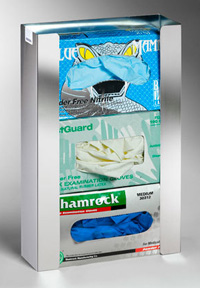| The Home page of ILPI's Safety Data Sheet (SDS) Resource, the leader in SDS information since 1995! | |
| The history and philosophy behind this resource. | |
| A curated collection of books and reference materials concerning Safety Data Sheets and closely related topics. | |
| Paste your plain text SDS into the SDS-Demystifier, and it will be converted into a hypertext-enriched document with links to detailed explanations of each key term. | |
| An extensive list of frequently asked questions about Safety Data Sheets including regulations, content, compliance, and more. | |
| A humorous take on Safety Data Sheet jargon. Fill in the blanks on our entry form to generate a personalized Unsafety Data Sheet to share with your coworkers. | |
| Since 1995, we've maintained this massive curated list of the best places to find Safety Data Sheets on the Internet. | |
| You are here! Way more than a glossary, this hypertext-enhanced resource covers hundreds of SDS-related terms and expert knowledge. Each entry includes both the SDS relevance and links to additional authoritative resources. | |
| Archived results of Safety Data Sheet related polls taken by some of our millions of site visitors | |
| The OSHA regulations behind SDS regulations, including the inspection guidelines and over 400 official interpretations letters under the Hazard Communication Standard | |
| Commercial suppliers of SDS authoring and management software as well as cloud compliance services. | |
| Commercial companies that will create SDS's for your specific needs as well as SDS translation companies. |

Safety signs, banners, and scoreboards? Get yours at Safety Emporium!
Definition
Erythema is abnormal redness and inflammation of the skin caused by the congestion and dilation (widening) of the capillaries (tiny blood vessels). The effect is usually localized or patchy. In layman's terms, erythema is a skin rash.
Some references include the mucous membranes as well as the skin in their definition.
Additional Information
Rashes have many different causes such as heat, drugs, ultraviolet rays, ionizing radiation, over-exposure to sunlight and/or allergic reactions.
The term "erythema" is often used in conjunction with other words or modifiers to indicate a very specific type of rash. For example, erythema multiforme refers to a skin rash which is commonly triggered by a herpes simplex virus infection.
SDS Relevance

Encourage your workers to wear their gloves with stylish safety dispensers from Safety Emporium.
Erythema is found on certain Safety Data Sheets in Section 11 (toxicological information) to describe a rash that forms as a result of skin contact with the material (see contact dermatitis).
Avoid contact of such materials with the skin, mucous membranes or eyes. Use appropriate personal protective equipment (PPE) such as gloves, aprons, goggles, dust masks etc. as necessary to prevent contact or exposure. You can also reduce your exposure using engineering controls as well as administrative controls, or by substituting or eliminating the substance.
Further Reading
- Dermatitis, Irritant Contact at CCOHS, focuses on occupational causes and includes a list of potential irritants by occupation.
- Erythema multiforme at DermNet NZ (includes graphic pictures).
- Erythema multiforme at The NIH's MedLine Plus.
- Erythema multiforme at the Merck Manual Professional version.
- Erythema multiforme at American Family Physician.
- Erythema Nodosum: Inflammatory Skin Condition Triggers and Treatment at healthgrades.
See also: Dermatitis, edema, lesion, urticaria, vesicant.